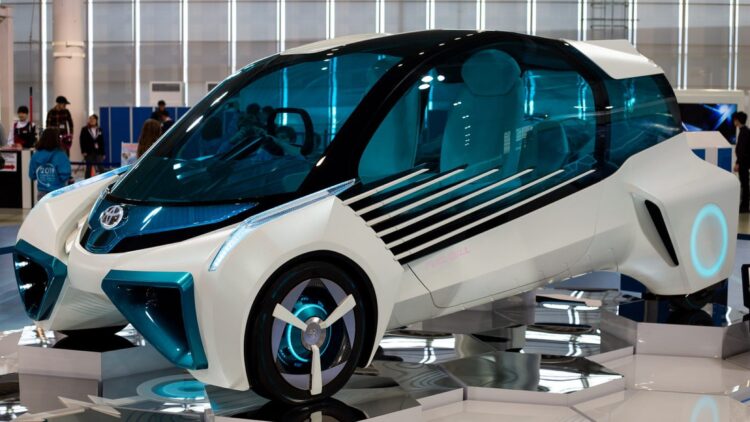Car manufacturers continue to look for alternatives to petrol and fossil fuels – some as curious as synthetic fuels, which we’ll come back to soon. However, one company has dared what we only knew in theory: this is the first-ever water car, and you won’t believe how it works.
A water car that puts a date on the end of gasoline: this company has made it happen
The idea of powering a car with water instead of gasoline has long fascinated inventors and environmentalists alike. What if cars could run simply on hydrogen extracted from water?
It would provide clean transportation powered by the most abundant substance on Earth. While water-fueled cars have remained mostly at the conceptual stage, a pioneering company called Electriq Global is turning the dream into reality.
Based in Israel, Electriq Global has developed a proprietary system that efficiently converts water into fuel to power vehicles. Their technology extracts hydrogen from water and uses it to generate electricity that propels the car.
This leap forward stands to completely transform the auto industry while also benefiting the environment. With an estimated 1,000 km range per tank, Electriq’s water-based fuel could soon make gasoline obsolete.
Theorised but unproven: this is how the first water car in history works
The water-powered car technology developed by the Israeli company Electriq Global utilizes a unique nano-technology that is able to split water into hydrogen and oxygen through a specialized membrane.
This membrane acts like an electrolytic cell, using electricity to break down the water molecules into their composite elements. The hydrogen produced from the reaction is then fed into the vehicle’s fuel cell.
In the fuel cell, the hydrogen combines with oxygen from the air to generate an electric current. This electricity powers the car’s electric motor, propelling the vehicle. Unlike traditional combustion engines, the only byproduct from this reaction is water, meaning the car emits only clean water vapor rather than any harmful emissions.
The membrane that splits the water molecules was developed specially by Electriq Global. It contains unique nanomaterials that make the reaction possible using much less electricity than has been needed before. This breakthrough helps make water-powered cars using hydrogen fuel cells a viable reality.
A prototype that has been difficult to optimize: the story of the first water car
Electriq Global has built multiple prototypes to test and refine its water-based fuel technology. In 2018, they successfully road-tested a Renault Clio retrofitted to run on the hydrogen-on-demand fuel system.
The test car achieved speeds over 70 mph and required no engine modifications besides connecting to an external water tank and fuel converter. Further road tests are planned using a Suzuki Vitara SUV retrofitted with a larger fuel converter and water tank to extend its range.
Electriq’s goal is to demonstrate over 600 miles per tank, comparable to traditional gasoline vehicles. So far, the technology has shown excellent results in normal driving conditions.
The fuel converter efficiently extracts hydrogen from water and feeds it to the engine with no loss of performance compared to gasoline. Through rigorous testing and refinements, Electriq aims to prove the viability of water-powered vehicles for everyday consumer use.
The truth is that a water car could be the end of petrol and all polluting fuels. We have known for years that hydrogen would play a very important role in the decarbonization of mobility, but not to this extent. Will we soon see it on our roads? Let’s hope so, given its advantages.

